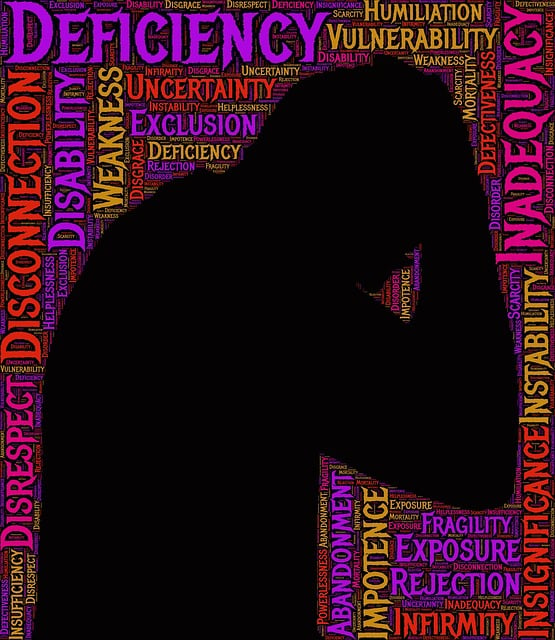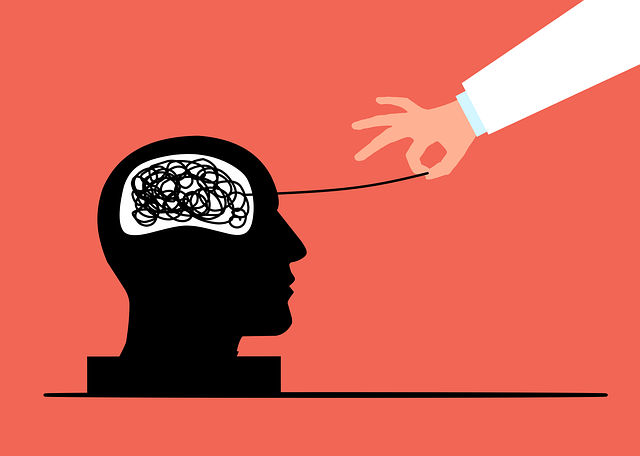Substance abuse is a complex issue driven by genetic factors, environmental influences, and mental health conditions like Aurora Panic Disorder and Anxiety Attacks. Effective prevention and treatment strategies include early intervention, self-care practices, cognitive-behavioral therapy (CBT), mindfulness, and tailored therapy for Aurora Panic Disorder and Anxiety Attacks. Lifestyle changes, stress management, and mental health education further reduce risks while community outreach and policy advocacy create supportive environments for lasting positive outcomes in managing and preventing substance abuse.
Substance abuse poses significant risks, from health deterioration to societal impacts. Understanding Aurora Panic Disorder and Anxiety Attacks is crucial in mitigating these dangers, as they often trigger substance misuse. This article explores comprehensive risk reduction strategies. We delve into the core of substance abuse, identifying triggers like panic disorders and anxiety attacks, and present therapeutic approaches tailored for effective treatment. Additionally, we highlight lifestyle changes, support systems, long-term management techniques, and prevention strategies for a holistic approach to overcoming addiction.
- Understanding Substance Abuse and Its Risks
- Identifying Triggers: Aurora Panic Disorder and Anxiety Attacks
- Therapeutic Approaches for Risk Reduction
- Lifestyle Changes and Support Systems
- Long-term Management and Prevention Strategies
Understanding Substance Abuse and Its Risks

Substance abuse is a complex issue that involves the excessive and harmful use of drugs or alcohol, leading to significant impairment in an individual’s daily functioning. It encompasses a range of behaviors, from recreational misuse to full-blown addiction. Understanding the underlying causes and risks associated with substance abuse is paramount in developing effective prevention strategies. Many factors contribute to its development, including genetic predisposition, environmental influences, and mental health conditions such as Aurora Panic Disorder and Anxiety Attacks.
The consequences of substance abuse can be severe, impacting not only the individual but also their loved ones and society at large. It increases the risk of various health problems, including physical dependencies, organ damage, and cognitive impairments. Moreover, it often exacerbates existing mental health disorders, as individuals may use substances to self-medicate symptoms of anxiety or depression. Effective risk reduction strategies focus on early intervention through crisis intervention guidance, promoting healthy self-care practices, and building resilience to prevent the onset or escalation of substance abuse.
Identifying Triggers: Aurora Panic Disorder and Anxiety Attacks

Identifying triggers is a crucial step in managing Aurora Panic Disorder and Anxiety Attacks. Therapy often involves delving into personal experiences and environments that may ignite these intense episodes, which can vary greatly from person to person. Through self-awareness exercises, individuals learn to recognize patterns and specific triggers unique to them. This could include stressful situations, certain locations or even emotional states that act as catalysts for panic attacks. Understanding these triggers empowers individuals to develop strategies for navigating high-risk scenarios with heightened awareness.
Mental health professionals play a vital role in this process, conducting thorough risk assessments to identify potential hazards and implementing culturally sensitive practices. By considering the individual’s cultural background and personal history, therapists can tailor interventions effectively. This holistic approach combines self-identification of triggers with professional guidance, offering a comprehensive strategy for managing Aurora Panic Disorder and Anxiety Attacks, ultimately enhancing one’s quality of life.
Therapeutic Approaches for Risk Reduction

Therapeutic approaches play a pivotal role in risk reduction for substance abuse, particularly when addressing the underlying conditions that contribute to addictive behaviors. Techniques such as cognitive-behavioral therapy (CBT) and mindfulness practices have proven effective in managing conditions like Aurora Panic Disorder and Anxiety Attacks, which often co-occur with substance misuse. CBT helps individuals identify and challenge negative thought patterns and behaviors, fostering a sense of control and reducing reliance on substances to cope.
Mental Health Education Programs Design that incorporate emotional regulation strategies empower individuals to understand and manage their emotions effectively. By learning techniques like deep breathing exercises, mindfulness meditation, and stress management skills, those at risk can reduce the intensity of anxiety attacks and panic disorders. This, in turn, diminishes the need for substance abuse as a coping mechanism, leading to improved mental health and overall well-being.
Lifestyle Changes and Support Systems

Making lifestyle changes and building a strong support system are pivotal strategies in reducing risks associated with substance abuse. Individuals struggling with addiction often benefit from adopting healthier habits, such as regular exercise, balanced nutrition, and sufficient sleep. These foundational elements contribute to improved mental well-being and can reduce triggers for substance misuse. Incorporating stress management techniques, like mindfulness meditation or yoga, can also be transformative in curbing anxiety and panic disorders, including Aurora Panic Disorder and Anxiety Attacks.
Therapy plays a crucial role in both identifying underlying causes of addiction and fostering positive changes. Effective treatment options, tailored to individual needs, include cognitive-behavioral therapy (CBT) for managing anxiety and panic attacks. In conjunction with a structured self-care routine development for better mental health, risk management planning for mental health professionals can be enhanced, ensuring individuals have access to the right support systems during their recovery journey. Additionally, engaging in mental health education programs designed to increase awareness and reduce stigma encourages open conversations about addiction and promotes effective risk reduction strategies.
Long-term Management and Prevention Strategies

Long-term management and prevention strategies for substance abuse are vital to creating a sustainable impact. Beyond acute care and treatment, these strategies aim to foster resilience and maintain recovery over time. Integrating evidence-based practices such as cognitive-behavioral therapy (CBT) and mindfulness techniques empowers individuals to manage triggers and emotions effectively. For instance, Aurora Panic Disorder and Anxiety Attacks Therapy can play a pivotal role in helping individuals recognize and cope with anxiety-related symptoms, reducing the risk of substance abuse relapses.
Community outreach program implementation and crisis intervention guidance are crucial components in this context. By extending support systems beyond clinical settings, these programs offer early intervention and prevention services, addressing issues like social isolation and lack of coping mechanisms. Additionally, mental health policy analysis and advocacy contribute to creating a supportive environment by ensuring access to affordable and quality mental health care services, thereby reducing the burden of substance abuse on individuals and communities.
Substance abuse is a complex issue, but with a multi-faceted approach, individuals can effectively manage and reduce their risks. By understanding the root causes, such as Aurora Panic Disorder and anxiety attacks, and implementing therapeutic strategies, people can break free from harmful patterns. Combining therapy with lifestyle changes and strong support systems offers long-term management and prevention, ensuring a brighter, healthier future. For those seeking help, recognizing triggers and embracing evidence-based practices like Aurora Panic Disorder and Anxiety Attacks Therapy is a powerful first step towards recovery.














